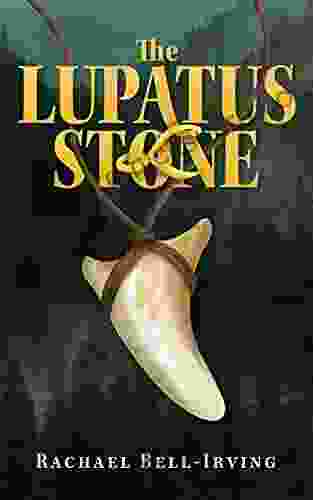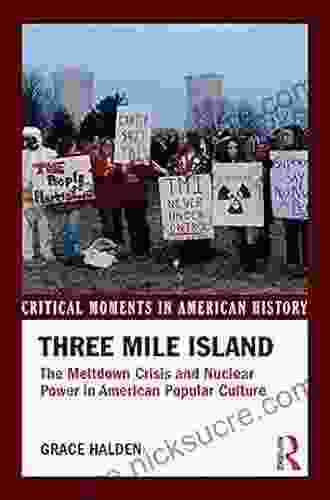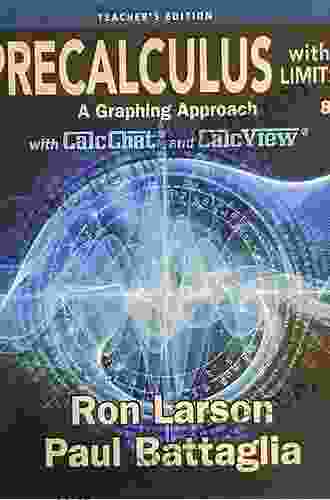The Meltdown Crisis and Nuclear Power in American Popular Culture: A Critical Analysis

5 out of 5
| Language | : | English |
| File size | : | 11044 KB |
| Text-to-Speech | : | Enabled |
| Screen Reader | : | Supported |
| Enhanced typesetting | : | Enabled |
| Word Wise | : | Enabled |
| Print length | : | 252 pages |
The nuclear meltdown crisis at the Fukushima Daiichi Nuclear Power Plant in Japan in 2011 was a major event that raised serious concerns about the safety of nuclear power. In the aftermath of the crisis, there has been a significant decline in public support for nuclear power in many countries, including the United States.
American popular culture has played a significant role in shaping public perceptions of nuclear power. Movies, television shows, and other forms of popular culture have often depicted nuclear power in a negative light, portraying it as a dangerous and unreliable source of energy. This has contributed to the public's fears and concerns about nuclear power.
In this essay, I will critically analyze the portrayal of the nuclear meltdown crisis and the nuclear power industry in American popular culture. I will argue that these representations have often been inaccurate and misleading, and that they have had a negative impact on public perceptions of nuclear power.
The Meltdown Crisis in American Popular Culture
The nuclear meltdown crisis at Fukushima Daiichi was a major event that captured the attention of the world. The crisis began on March 11, 2011, when a powerful earthquake and tsunami struck Japan. The earthquake and tsunami caused extensive damage to the Fukushima Daiichi Nuclear Power Plant, leading to a series of meltdowns and explosions. The crisis resulted in the release of large amounts of radioactive material into the environment, and it forced the evacuation of hundreds of thousands of people.
The Fukushima Daiichi nuclear meltdown crisis was a major turning point in the history of nuclear power. The crisis raised serious concerns about the safety of nuclear power, and it led to a significant decline in public support for nuclear power in many countries.
American popular culture has played a significant role in shaping public perceptions of the Fukushima Daiichi nuclear meltdown crisis. Movies, television shows, and other forms of popular culture have often depicted the crisis in a negative light, portraying it as a major disaster that could have been avoided. This has contributed to the public's fears and concerns about nuclear power.
The Nuclear Power Industry in American Popular Culture
The nuclear power industry has also been portrayed in a negative light in American popular culture. Movies, television shows, and other forms of popular culture have often depicted the nuclear power industry as being corrupt and irresponsible. This has contributed to the public's distrust of the nuclear power industry.
One of the most common tropes in American popular culture is the idea that nuclear power plants are inherently dangerous. This trope is often used to create suspense and drama in movies and television shows. However, it is important to note that nuclear power plants are actually very safe. In fact, nuclear power is one of the safest forms of energy production. Nuclear power plants are designed with multiple layers of safety systems to prevent accidents. And, nuclear power plants are constantly monitored by the Nuclear Regulatory Commission (NRC) to ensure that they are operating safely.
Another common trope in American popular culture is the idea that the nuclear power industry is corrupt and irresponsible. This trope is often used to create a sense of distrust and fear. However, it is important to note that the nuclear power industry is highly regulated. Nuclear power plants are subject to strict safety standards and regulations. And, the NRC has a long history of enforcing these standards and regulations.
The Impact of American Popular Culture on Public Perceptions of Nuclear Power
American popular culture has had a significant impact on public perceptions of nuclear power. The negative portrayal of nuclear power in popular culture has contributed to the public's fears and concerns about nuclear power. This has made it difficult for the nuclear power industry to gain public support for new nuclear power plants.
It is important to note that American popular culture is not the only factor that has shaped public perceptions of nuclear power. The media, the government, and the nuclear power industry itself have also played a role. However, American popular culture has played a significant role in shaping the public's understanding of nuclear power. And, the negative portrayal of nuclear power in popular culture has had a negative impact on public support for nuclear power.
The nuclear meltdown crisis at Fukushima Daiichi and the nuclear power industry have been portrayed in a negative light in American popular culture. This has contributed to the public's fears and concerns about nuclear power. It is important to note that American popular culture is not the only factor that has shaped public perceptions of nuclear power. However, American popular culture has played a significant role in shaping the public's understanding of nuclear power. And, the negative portrayal of nuclear power in popular culture has had a negative impact on public support for nuclear power.
It is important to have a balanced and informed understanding of nuclear power. Nuclear power is a safe and reliable source of energy. It is also a clean source of energy that does not produce greenhouse gases. Nuclear power can play an important role in reducing our dependence on fossil fuels and in mitigating climate change.
5 out of 5
| Language | : | English |
| File size | : | 11044 KB |
| Text-to-Speech | : | Enabled |
| Screen Reader | : | Supported |
| Enhanced typesetting | : | Enabled |
| Word Wise | : | Enabled |
| Print length | : | 252 pages |
Do you want to contribute by writing guest posts on this blog?
Please contact us and send us a resume of previous articles that you have written.
 Fiction
Fiction Non Fiction
Non Fiction Romance
Romance Mystery
Mystery Thriller
Thriller SciFi
SciFi Fantasy
Fantasy Horror
Horror Biography
Biography Selfhelp
Selfhelp Business
Business History
History Classics
Classics Poetry
Poetry Childrens
Childrens Young Adult
Young Adult Educational
Educational Cooking
Cooking Travel
Travel Lifestyle
Lifestyle Spirituality
Spirituality Health
Health Fitness
Fitness Technology
Technology Science
Science Arts
Arts Crafts
Crafts DIY
DIY Gardening
Gardening Petcare
Petcare Amanda Claridge
Amanda Claridge Lavinia Collins
Lavinia Collins Francis L Macrina
Francis L Macrina Raymond Arsenault
Raymond Arsenault Alan Naldrett
Alan Naldrett George Grimm
George Grimm Bilingual Edition Kindle Edition
Bilingual Edition Kindle Edition 1st Ed 2017 Edition Kindle Edition
1st Ed 2017 Edition Kindle Edition Robert Irwin
Robert Irwin Wabun Wind
Wabun Wind Marisa Kanter
Marisa Kanter David Weber
David Weber Bradmd
Bradmd Mark Lattanzi
Mark Lattanzi Didier Reiss
Didier Reiss Nancy B Rapoport
Nancy B Rapoport Christopher Carter
Christopher Carter Diane H Tracey
Diane H Tracey Alexandra Kenin
Alexandra Kenin S K Gupta
S K Gupta Matthew Harffy
Matthew Harffy Charlotte Eliopoulos
Charlotte Eliopoulos Ali Psiuk
Ali Psiuk Belinia Xenrale
Belinia Xenrale Forrest Willett
Forrest Willett Rana Conway
Rana Conway Ben Rothenberg
Ben Rothenberg Jandy Nelson
Jandy Nelson Alexandra Witze
Alexandra Witze Frank Wilczek
Frank Wilczek Shane Jones
Shane Jones Hafsah Faizal
Hafsah Faizal Carola Hein
Carola Hein Michael Ross
Michael Ross Lisa R Cohen
Lisa R Cohen 15th Edition Kindle Edition
15th Edition Kindle Edition Alex Hibbert
Alex Hibbert Brad Myers
Brad Myers Florence Nightingale
Florence Nightingale John L Havlin
John L Havlin Wendy Sullivan
Wendy Sullivan Evelyn Raab
Evelyn Raab Sarah Thompson
Sarah Thompson Jerome Rand
Jerome Rand James Ragonnet
James Ragonnet Cal Peternell
Cal Peternell Jacob Gardner
Jacob Gardner Helen Batten
Helen Batten Arny Alberts
Arny Alberts Tillie Cole
Tillie Cole Kim Dwinell
Kim Dwinell Mike Lanza
Mike Lanza Nageshwar Sah
Nageshwar Sah M Susan Lindee
M Susan Lindee Mark Santino
Mark Santino Laura Prepon
Laura Prepon Nick Redfern
Nick Redfern Aaron T Beck
Aaron T Beck Will Nett
Will Nett Christopher Hook
Christopher Hook Jason Sumner
Jason Sumner Judith Warner
Judith Warner Diane Vaughan
Diane Vaughan Wendy Higgins
Wendy Higgins Chris Parsons
Chris Parsons Beryl Beare
Beryl Beare Charles Fleming
Charles Fleming Lynne Tolley
Lynne Tolley Robert Oerter
Robert Oerter Karen Kovacs
Karen Kovacs Samuel Owedyk
Samuel Owedyk Gary Dierking
Gary Dierking 1st Ed 2016 Edition Kindle Edition
1st Ed 2016 Edition Kindle Edition Mary Douglas
Mary Douglas Joyce L Vedral
Joyce L Vedral Tom Chivers
Tom Chivers Intelligent
Intelligent Otto Toeplitz
Otto Toeplitz Kathleen Buckstaff
Kathleen Buckstaff Disha Experts
Disha Experts Daniel L Schacter
Daniel L Schacter Susan Alcorn
Susan Alcorn Katie Singer
Katie Singer R J Vickers
R J Vickers James Adams
James Adams Fletcher Dunn
Fletcher Dunn Joshua G Shifrin
Joshua G Shifrin Aron Ralston
Aron Ralston William E Glassley
William E Glassley Daniel Todd Gilbert
Daniel Todd Gilbert Kay Kennedy
Kay Kennedy Philippa Langley
Philippa Langley Estelle Maskame
Estelle Maskame Timothy Dickeson
Timothy Dickeson George Mount
George Mount Orji Onyebuchi
Orji Onyebuchi Anton Angelov
Anton Angelov Launi Meili
Launi Meili Brian Fagan
Brian Fagan Diana Papaioannou
Diana Papaioannou Ann Olga Koloski Ostrow
Ann Olga Koloski Ostrow Harvey Penick
Harvey Penick Jonathan Tarbox
Jonathan Tarbox Dana Trentini
Dana Trentini Norman Delgado
Norman Delgado Editions La Plume D Eros
Editions La Plume D Eros Deborah T Goldberg
Deborah T Goldberg Grace Liu
Grace Liu Michael T Mcdermott
Michael T Mcdermott Robert Clifton Robinson
Robert Clifton Robinson Lisa Marasco
Lisa Marasco Egerton Ryerson Young
Egerton Ryerson Young Amanda Kingloff
Amanda Kingloff Michelle Damiani
Michelle Damiani James Proctor
James Proctor Nicole Zasowski
Nicole Zasowski Andrew Evans
Andrew Evans Vikas Bhushan
Vikas Bhushan Susan Ludington Hoe
Susan Ludington Hoe Hesam Nemounehkhah
Hesam Nemounehkhah Karyn Garvin
Karyn Garvin Robyn Perry Worthington
Robyn Perry Worthington Jean Yves Leloup
Jean Yves Leloup Timothy R Pauketat
Timothy R Pauketat Jeremy Bhandari
Jeremy Bhandari Maureen Dempsey
Maureen Dempsey Larry Krieger
Larry Krieger Joachim Rossberg
Joachim Rossberg Jonathan Vaughters
Jonathan Vaughters Janice K Ledford
Janice K Ledford Kim Mack Rosenberg
Kim Mack Rosenberg Mae Ilami Onyekwum
Mae Ilami Onyekwum Perre Coleman Magness
Perre Coleman Magness Marva Collins
Marva Collins Jacob Cohen
Jacob Cohen Asti Hustvedt
Asti Hustvedt Philip Coppens
Philip Coppens Peter Burns
Peter Burns Paul A Laviolette
Paul A Laviolette Harold Simmons
Harold Simmons Jacqueline Corricelli
Jacqueline Corricelli Paul Gaskell
Paul Gaskell Rebecca Solnit
Rebecca Solnit Scott Matthews
Scott Matthews Latham Thomas
Latham Thomas Nicholas J Saunders
Nicholas J Saunders Bob Allcorn
Bob Allcorn Lars Anderson
Lars Anderson Steve Garratt
Steve Garratt Sandra Uwiringiyimana
Sandra Uwiringiyimana Teddy Atlas
Teddy Atlas Elizabeth Heavey
Elizabeth Heavey Jeanne Oliver
Jeanne Oliver Erin Miller
Erin Miller Adam Rutherford Phd
Adam Rutherford Phd Duncan Hamilton
Duncan Hamilton Suzy Hopkins
Suzy Hopkins Mike Barrett
Mike Barrett Lani Forbes
Lani Forbes Sophie Kinsella
Sophie Kinsella Dorthe Berntsen
Dorthe Berntsen David Clark
David Clark Michael Archer
Michael Archer Dr Mike Grevlos
Dr Mike Grevlos T M Mikita
T M Mikita Paul Haddad
Paul Haddad Xiufeng Liu
Xiufeng Liu Adeline Yen Mah
Adeline Yen Mah Megan Sloan
Megan Sloan Tim Deroche
Tim Deroche Lei Wang
Lei Wang Sanjay Sarma
Sanjay Sarma Burt L Standish
Burt L Standish Wolfgang Jank
Wolfgang Jank 6th Edition Kindle Edition
6th Edition Kindle Edition House Of Talent
House Of Talent Webb Chiles
Webb Chiles Glenda Green
Glenda Green Caroline Fidanza
Caroline Fidanza Amanda Brooks
Amanda Brooks Shane Benzie
Shane Benzie Derek Rowntree
Derek Rowntree Christian Straube
Christian Straube Phil Mickelson
Phil Mickelson Joshua James
Joshua James Keshia A Case
Keshia A Case Valerie Nash Chang
Valerie Nash Chang Chris Stringer
Chris Stringer Elizabeth Becker
Elizabeth Becker Larry Kaniut
Larry Kaniut Peter Heller
Peter Heller Mayim Bialik
Mayim Bialik Chris J Ellis
Chris J Ellis Sally A Lipsky
Sally A Lipsky Ric Conrad
Ric Conrad Pat Manley
Pat Manley Karina Manta
Karina Manta David Faulkner
David Faulkner Erfun Geula
Erfun Geula Thomas Lickona
Thomas Lickona Alice Waters
Alice Waters Kev Reynolds
Kev Reynolds Lou Nanne
Lou Nanne Richard E Nisbett
Richard E Nisbett Morten H Christiansen
Morten H Christiansen Jamie Dorobek
Jamie Dorobek Liz Thomas
Liz Thomas Peter Lightbown
Peter Lightbown Franz Boas
Franz Boas John T Cacioppo
John T Cacioppo Taran Matharu
Taran Matharu Stephen C Meyer
Stephen C Meyer Ashlee Kasten
Ashlee Kasten Christine E Sleeter
Christine E Sleeter Raven Morgaine
Raven Morgaine Christa Mackinnon
Christa Mackinnon Michael Borenstein
Michael Borenstein Ivana Bajic Hajdukovic
Ivana Bajic Hajdukovic Kaoru Sinozaki
Kaoru Sinozaki Eric Sevareid
Eric Sevareid Sharon Copeland
Sharon Copeland Tadahiko Mizuno
Tadahiko Mizuno Deborah Spungen
Deborah Spungen Maia Motley
Maia Motley Clark A Campbell
Clark A Campbell 1st Ed 2021 Edition Kindle Edition
1st Ed 2021 Edition Kindle Edition Sarah A Clark
Sarah A Clark Taylor Fontenot
Taylor Fontenot Dk Publishing
Dk Publishing Philip Moore
Philip Moore Nick Morrison
Nick Morrison Rosemary Ellen Guiley
Rosemary Ellen Guiley Livy
Livy Dierdre Wolownick Honnold
Dierdre Wolownick Honnold Gary M Schultheis
Gary M Schultheis Dinah Bucholz
Dinah Bucholz Dylan Dethier
Dylan Dethier Ashley Stanford
Ashley Stanford Bill Rodgers
Bill Rodgers Michael R Canfield
Michael R Canfield Elise Hennessy
Elise Hennessy Bruce Brown
Bruce Brown Leslie Anthony
Leslie Anthony Rafael Nadal
Rafael Nadal Hana Ali
Hana Ali 1st Ed 2020 Edition Kindle Edition
1st Ed 2020 Edition Kindle Edition David Roberts
David Roberts Arden Rose
Arden Rose Jay Carter
Jay Carter Brent E Turvey
Brent E Turvey Ronald York
Ronald York Guy Harrison
Guy Harrison Chip Ingram
Chip Ingram Harry Fisch
Harry Fisch Karen L Cox
Karen L Cox Natalia Molina
Natalia Molina Nancy Hendrickson
Nancy Hendrickson Tamonya Sands
Tamonya Sands Emily Vikre
Emily Vikre Irene Spencer
Irene Spencer Naomi Moriyama
Naomi Moriyama Felicia Pizzonia
Felicia Pizzonia Raichelle Carter
Raichelle Carter Ian Sample
Ian Sample Botros Rizk
Botros Rizk Jareth Tempest
Jareth Tempest S Elia
S Elia Russ Moorhouse
Russ Moorhouse Daniel Scott
Daniel Scott Andrew Solomon
Andrew Solomon Ian Stewart
Ian Stewart Holly Hook
Holly Hook Jacqueline Carey
Jacqueline Carey Janice Hudson
Janice Hudson Robert Lanza
Robert Lanza Anthony Haynes
Anthony Haynes Joanne Calderwood
Joanne Calderwood Claire Dunn
Claire Dunn Mike Bender
Mike Bender David I Spivak
David I Spivak Barry Ord Clarke
Barry Ord Clarke M L Buchman
M L Buchman Joan Ryan
Joan Ryan Ann Jackson
Ann Jackson Os Guinness
Os Guinness Rollo Tomassi
Rollo Tomassi Mildred Council
Mildred Council Jack Newfield
Jack Newfield Bud Hasert
Bud Hasert Kyler Shumway
Kyler Shumway Daniel H Pink
Daniel H Pink D James Benton
D James Benton Peter Hessler
Peter Hessler Alexandre Paiva
Alexandre Paiva Helen Garabedian
Helen Garabedian Lech A Grzelak
Lech A Grzelak Stephen Bodio
Stephen Bodio Broccoli Lion
Broccoli Lion Brent Warner
Brent Warner Gail Buckland
Gail Buckland Bryn Huntpalmer
Bryn Huntpalmer Kiley Reid
Kiley Reid Chad Waterbury
Chad Waterbury Robyn Hawkins
Robyn Hawkins Nathan D Lang Raad
Nathan D Lang Raad Rebekah Dodson
Rebekah Dodson John Toussaint
John Toussaint Day Schildkret
Day Schildkret Tim Hollister
Tim Hollister Anthony Burgess
Anthony Burgess Monte Burch
Monte Burch Robert Chu
Robert Chu J F Tamayo
J F Tamayo Robin Hobb
Robin Hobb Carmen Acevedo Butcher
Carmen Acevedo Butcher Desiree Trattles
Desiree Trattles Richard Pears
Richard Pears Larry A Yff
Larry A Yff Alan Greenfield
Alan Greenfield Steve Crawford
Steve Crawford Shalini Shankar
Shalini Shankar Daisaku Ikeda
Daisaku Ikeda Darril Fosty
Darril Fosty Gary E Schwartz
Gary E Schwartz Jill Heinerth
Jill Heinerth Jane Yeadon
Jane Yeadon Jo Bartlett
Jo Bartlett Joshua Darwin
Joshua Darwin David Barrett
David Barrett Guillermo Gonzalez
Guillermo Gonzalez Carol Matsuzaki
Carol Matsuzaki Traci Chee
Traci Chee Piotr Naskrecki
Piotr Naskrecki Leona S Aiken
Leona S Aiken Bill Douglas
Bill Douglas Roger Frampton
Roger Frampton The Lodge Company
The Lodge Company Doug Degrood
Doug Degrood Stephen R Lawhead
Stephen R Lawhead Heather A Smith
Heather A Smith Kajal Gupta
Kajal Gupta Travis Senzaki
Travis Senzaki Matthew Dworak
Matthew Dworak Adam Cesare
Adam Cesare Sarah Lawton
Sarah Lawton Denis Dwyer
Denis Dwyer Sara Snow
Sara Snow Richard Hofstadter
Richard Hofstadter Cathy Hester Seckman
Cathy Hester Seckman Lenora Chu
Lenora Chu Andy Kirkpatrick
Andy Kirkpatrick Patricia G Lange
Patricia G Lange Samantha Boardman
Samantha Boardman Spire Study System
Spire Study System Bruce Chatwin
Bruce Chatwin Ejike Ifeanyichukwu
Ejike Ifeanyichukwu Manjit Kumar
Manjit Kumar Lawrence T Friedhoff
Lawrence T Friedhoff Emily Chetkowski
Emily Chetkowski Sara Saedi
Sara Saedi Craig Clapper
Craig Clapper Mark Seidenberg
Mark Seidenberg Evy Poumpouras
Evy Poumpouras Jody Morse
Jody Morse Keith Bowden
Keith Bowden Knowledge Tree
Knowledge Tree Alison Gopnik
Alison Gopnik Kara Goucher
Kara Goucher 1st Ed 2018 Edition Kindle Edition
1st Ed 2018 Edition Kindle Edition Sean Fitz Gerald
Sean Fitz Gerald Julie K Briggs
Julie K Briggs Rachel Reed
Rachel Reed Janet Malcolm
Janet Malcolm Ruth Ware
Ruth Ware Isa Herrera
Isa Herrera Mark Miller
Mark Miller Andrea Olson
Andrea Olson Kristen Thrasher
Kristen Thrasher David Wolff
David Wolff Ukay J Ekong
Ukay J Ekong Eryk Lewinson
Eryk Lewinson Tim Powers
Tim Powers Felicity Cloake
Felicity Cloake Carol Lynn Mckibben
Carol Lynn Mckibben Mike Chappell
Mike Chappell Rachael Bell Irving
Rachael Bell Irving Mambo Chita Tann
Mambo Chita Tann Bob Chandler
Bob Chandler Robert Milner
Robert Milner Michael Schiavone
Michael Schiavone Alison Pray
Alison Pray Matthew B Crawford
Matthew B Crawford Teri Tom
Teri Tom Rick Barba
Rick Barba Paul Freedman
Paul Freedman Hannu Rajaniemi
Hannu Rajaniemi Jim Baggott
Jim Baggott Jacob Stegenga
Jacob Stegenga 1st Edition Kindle Edition
1st Edition Kindle Edition Kathy Farrokhzad
Kathy Farrokhzad Lh Press
Lh Press Tyler Lansford
Tyler Lansford R I Chalmers
R I Chalmers Skylar Kergil
Skylar Kergil Karl Rehn
Karl Rehn Laura Luther
Laura Luther John S Farnam
John S Farnam Julia Rutland
Julia Rutland Pete Magill
Pete Magill Paul Johnson
Paul Johnson My Daily German
My Daily German H Lee Jones
H Lee Jones Six Sisters Stuff
Six Sisters Stuff Natsuki Takaya
Natsuki Takaya Julie Angus
Julie Angus Gerd Gigerenzer
Gerd Gigerenzer Jon Young
Jon Young Ewan Mcgregor
Ewan Mcgregor Saroo Brierley
Saroo Brierley Vaclav Smil
Vaclav Smil Edward A Bell
Edward A Bell Lori Bregman
Lori Bregman Jamie Whyte
Jamie Whyte Irina Szmelskyj
Irina Szmelskyj Jesse M Ehrenfeld
Jesse M Ehrenfeld Pam Vredevelt
Pam Vredevelt Jeffrey S Saltz
Jeffrey S Saltz Mindfulness Hypnosis Academy
Mindfulness Hypnosis Academy Geoff Powter
Geoff Powter Yaron Seidman
Yaron Seidman Jay Cassell
Jay Cassell Randall M Packard
Randall M Packard James M Tabor
James M Tabor Jamil Zaki
Jamil Zaki Loudell F Snow
Loudell F Snow John Small
John Small Mark Vee John
Mark Vee John 1st Ed 2019 Edition Kindle Edition
1st Ed 2019 Edition Kindle Edition Janet Godwin
Janet Godwin Andrea Sfiligoi
Andrea Sfiligoi Berkshire K Greene
Berkshire K Greene Gill Stewart
Gill Stewart Gerald Beaudry
Gerald Beaudry Clifford E Trafzer
Clifford E Trafzer Cathy Raubenheimer
Cathy Raubenheimer Terry Pratchett
Terry Pratchett Stanley Vast
Stanley Vast Geoff Johns
Geoff Johns Derald Wing Sue
Derald Wing Sue Patricia B Mcconnell
Patricia B Mcconnell Pam Jarvis
Pam Jarvis Brian Meier
Brian Meier Zachary Willey
Zachary Willey Anne Polli
Anne Polli Neil Sagebiel
Neil Sagebiel Sharon Wilkins
Sharon Wilkins Alice Roberts
Alice Roberts Phyllis Franklin
Phyllis Franklin Linda L French
Linda L French Nicole Libin Phd
Nicole Libin Phd Alan Agresti
Alan Agresti Monica Beyer
Monica Beyer Geraint Thomas
Geraint Thomas Ron Larson
Ron Larson Dan Robson
Dan Robson Robyn Ryle
Robyn Ryle R K Agarwal
R K Agarwal Fern Nichols
Fern Nichols Louise Warneford
Louise Warneford Michael Clarke
Michael Clarke Paul Annacone
Paul Annacone Amita Jassi
Amita Jassi Leonie Mack
Leonie Mack Graham Priest
Graham Priest Seth Tucker
Seth Tucker Sarah A Reinhard
Sarah A Reinhard Ray Mcnulty
Ray Mcnulty Michele Smith
Michele Smith Elizabeth Field
Elizabeth Field Stacey Steinberg
Stacey Steinberg Ben Coates
Ben Coates Jean Pierre De Caussade
Jean Pierre De Caussade Jeremy Lent
Jeremy Lent Robert Lomas
Robert Lomas Elaine Heney
Elaine Heney Christian Fader
Christian Fader David Fine
David Fine Modestus Anabaraonye
Modestus Anabaraonye Edward Marston
Edward Marston Mara Rutherford
Mara Rutherford Jeff Benedict
Jeff Benedict Joseph Mercola
Joseph Mercola Ivor Horton
Ivor Horton Ellie Marney
Ellie Marney David Kahn
David Kahn John Vigor
John Vigor Lindsey Bliss
Lindsey Bliss Leonard Sax
Leonard Sax
Light bulbAdvertise smarter! Our strategic ad space ensures maximum exposure. Reserve your spot today!

 Cruz SimmonsHow to Find Your Family History on a Genealogy Website: A Comprehensive Guide
Cruz SimmonsHow to Find Your Family History on a Genealogy Website: A Comprehensive Guide W.H. AudenFollow ·15.7k
W.H. AudenFollow ·15.7k Forrest BlairFollow ·17k
Forrest BlairFollow ·17k Jeremy MitchellFollow ·12.6k
Jeremy MitchellFollow ·12.6k Charles DickensFollow ·19.2k
Charles DickensFollow ·19.2k Anton FosterFollow ·11.8k
Anton FosterFollow ·11.8k Gabriel MistralFollow ·9.3k
Gabriel MistralFollow ·9.3k Clarence MitchellFollow ·12.2k
Clarence MitchellFollow ·12.2k Donovan CarterFollow ·19.4k
Donovan CarterFollow ·19.4k

 Marcus Bell
Marcus BellThe Essential Guide to Angler Quick Reference: Your...
Embark on an unforgettable...

 Juan Butler
Juan ButlerThe Lupatus Stone: A Wicked Conjuring
The Lupatus Stone is a...

 Alvin Bell
Alvin BellUnveiling the Enchanting Memoirs of Lady Hyegyong: A...
In the annals of Korean...

 DeShawn Powell
DeShawn PowellAMC's Best Day Hikes in the Berkshires: Explore Majestic...
The Berkshires, a...

 Clark Campbell
Clark CampbellRewilding The Urban Soul: Reconnecting with Nature in the...
In the heart of sprawling metropolises, where...

 Cruz Simmons
Cruz SimmonsHow to Find Your Family History on a Genealogy Website: A...
Delving into the...
5 out of 5
| Language | : | English |
| File size | : | 11044 KB |
| Text-to-Speech | : | Enabled |
| Screen Reader | : | Supported |
| Enhanced typesetting | : | Enabled |
| Word Wise | : | Enabled |
| Print length | : | 252 pages |










